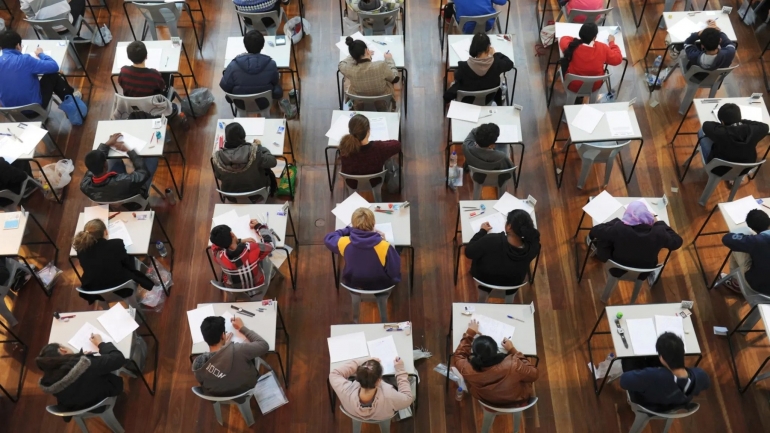As thousands of students begin their end of high school exams today, a new survey has found that most people believe using the Australian Tertiary Admission Rank (ATAR) to determine university entry adds too much pressure to already stressed out students.
A total of 57 per cent of respondents said ATAR scores create unnecessary pressure on Year 12 students, while that number rose to 75 per cent for people who completed Year 12 but didn't go onto tertiary education.
Eighty per cent of respondents agreed that university requirements should also consider a student abilities and talents when considering their admission potential.
The University of New South Wales Gonski Institute for Education released the findings which suggest that relying on a series of end-of-school exams as the primary means for university admission is not the best indicator of a student's overall abilities.
"There is a growing body of work that shows one off exams, which are supposedly meant to measure a student's whole of school experience, often do not accurately measure their skills, potential or overall ability," Institute Director, Professor Adrian Piccoli said.
"Like NAPLAN, the HSC scores are used to measure a very narrow range of student abilities which, under the current ATAR system, creates an enormous amount of pressure for all those involved."
Professor Piccoli also said that high schools were under pressure to ensure students achieve high scores on their ATAR, with school reputation being a mitigating factor which didn't necessarily indicate the level of education future students could achieve if they attended that school.
Universities are looking at ways to admit tertiary students based on their talents and capabilities as well as their exam marks.
The study also found connections between students from high schools with a higher socioeconomic status (SES) achieving higher ATAR scores.
"Those with high capability but who come from educationally disadvantaged backgrounds, particularly low SES, Indigenous and regional, rural and remote students, are less likely to achieve high ATARs, not because they are not talented but because the ATAR is not a fair measure of their talent and capacity to success at university," Professor Eileen Baldry, Deputy Vice Chancellor, Equity Diversity and Inclusion UNSW said.
This is why UNSW along with other national universities are working towards alternative entry pathways for students from all backgrounds, basing admission on a range of student talents and capabilities.

